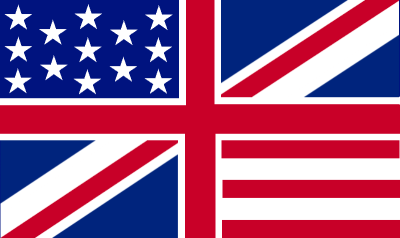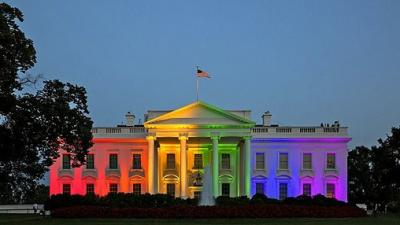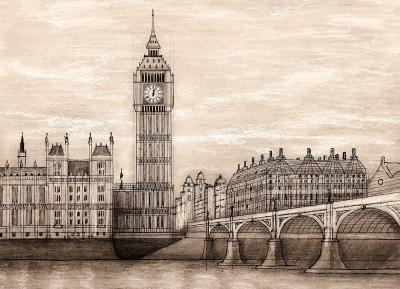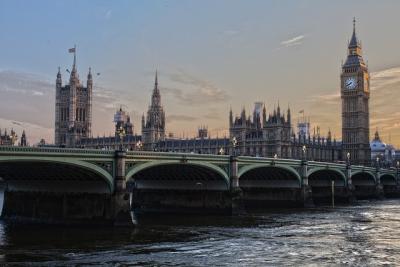Anglospherical: The Region Report on the Anglosphere - January 2023
The crass veneer of US politics
National politics in the US has become crasser over the past six decades, and often the Republicans have been to blame for pushing the envelope. Richard Nixon’s paranoia forcing his resignation from the presidency or Newt Gingrich’s bellicose tenure as Speaker of the House (resulting also in a forced resignation) could serve as case-in-point. However, their approach – the crassness – was often deliberately applied like sandpaper to the thick veneer of Kennedy-esque gentility that seemed designed to cover a deep rot beneath. Prior to Kennedy it was Roosevelt’s kid gloves of patrician condescension that provided the base coat.
Kennedy died too young to be exposed as the shell of a man he was. The historical record has since been partially corrected, even if the popular imagination is still seduced by his playboy president image. In A Question of Character: A Life of John F. Kennedy (1991), Thomas C. Reeves began to crack the veneer in a book-length treatment of the relation of (Kennedy’s poor) personal character to (his poor and methinks mercifully brief) presidency. Bill Clinton stayed on the scene too long to hide from his demons. In an attempt at a non-copulative affair (I know, JFK would be rolling in his grave at this amateur), Mr Clinton finally managed to expose all his, ahem, whole ‘person’ to the help. Once caught out, he then struggled in court, as only a lawyer might do, to define the copulative verb. Pontius Pilate had asked, ‘What is truth?’ Slick Willy managed to ask: ‘What is is?’
Speaker of the House?
Currently, the US is preparing to subject the world to another unhinged contest for the job no sane person should try to seek, the US Presidency. Each candidate will spend the yearly GDP of several respectably-sized nations to fail in this ultimate vanity show. If the recent contest for Speaker of the House of Representatives portends anything for the Presidential contest, then we are in for another two years of travelling-carnival level politicking – all fun house mirrors, unsafe rides with unsafer ride-operators, and plenty of stuffed geriatric animals. It took fifteen rounds of voting finally to get Kevin McCarthy elected to the speakership on January 7th of this year by only a four vote margin of 216-212.
During the endless rounds of voting, concessions were made limiting the power of the Speaker. This trimming of accrued powers is probably for the better. The Speaker position had gained outsized influence over the House rules that had then become used routinely to obfuscate rather than illuminate the lawmaking process. The House itself is obese and dysfunctional; the speaker contest is for the position at the rostrum heading the bloated, 435-member, popularly-elected body, with terms of a mere two years between elections. It has been unable even to approve a national budget for years on end, and cannot seem to restrain itself from refraining to pass bills into law. In no small part, the ascent of the US Supreme Court over the past seventy years to a de facto national legislator on contentious issues is owing to the failure of the House of Representatives to do its basic work of advising and legislating.
McCarthy’s was also the longest speaker contest since 1859. At that time, the nation was ready to divide into its original constitutive parts. It would soon fight a Civil War on that very issue. The health of the basic institutions of government could have been seen as a barometer of the increased pressure on the Union. They were also a thermostat, which indicates temperature but also allows for the temperature to be changed. Meaning, it was not inevitable that a Civil War would be conducted to preserve the Union or even to reform it. Likewise, it is not now inevitable that the impotence of the Congress (for, the Senate is another story of insular incompetence) or the increasing ineptitude of the presidency (over at least the last six presidents) and executive branch, should result in dissolution or open discord.
Great-grand president?
On the matter of the presidency, Biden is not senile. He’s just really old. Old people are great. I hope to be an old person someday. But, as any of us age we are also gradually visited by decline in cognition, awareness, judgment, affectual life, energy, memory, and all the rest. Age impairs our ability to work, and to work well. Most civilized nations require a basic health test in order even to drive an automobile after reaching a certain age. I imagine the equivalent as a qualification for high office would fail. Any cognitive test or mandatory health check is either going to be designed unfairly to exclude someone’s enemies, or be far too negotiable to provide safeguards against gaming it. Doctor shopping is already done by politicians who want to be declared fit for office.
In the late eighteenth century, when the office of the president was designed, it would have been hard to imagine a phalanx of octogenarians slowly approaching a debating podium with intent. Although some among the American Founding Fathers were long lived – Jefferson (83), Madison (84), Franklin (85), Adams (91!), by the time they had reached four score years, most had long retired to some suitable past-time, such as writing their memoirs.
Ours is an age not only of longevity but, in no small part because of that great longevity, also of hubris. When a large number of the popular contenders for the highest office are old enough to forget that they once thought Barry Manilow made good music, age limits for national office would be warranted. As the re-emergence of large-scale war in Europe has taught us, this is especially important in lands that have an executive with great war and peace powers, nuclear weapons and the ability to lock down a nation for perceived health risks. Both the US and France leap to mind.
As a warning to the Republic, the only branch of government in the US that currently works as designed is the Supreme Court. It is also the least interrogable by popular forces from below, by peer institutions, or by any purportedly superior power. Put simply, it is the most aristocratic of institutions in the Republic. It consists of nine, life-tenured judges, beyond whose jurisprudence one could only hope to appeal to the Almighty himself. Addressed formally, placed in robes, sat high above the court, they preside. Each is provided with a private staff of qualified advisors of their own choosing – fittingly called ‘clerks,’ for aristocrats need their secular priests. Each occupies a wholly independent position as judge of the larger body that is the Court. As Alexis de Tocqueville famously noticed, systems of title and privilege allow certain individuals the liberty to avoid conformity as well as to hone specific virtues to a degree that is not possible in democratic systems. The Supreme Court has done just that. And the longer judges preside, the greater the differences between them seem to become. The Supreme Court, then, also functions as a ‘court’ in the was that term is used in relation to royalty or popes or great duchies.
A king without crown or cross
Speaking of courts, the Palace is preparing the Coronation of Charles as Charles III in May. In the run-up we are being spoon-fed images and information about how this king might articulate the role of the Crown, its relation to the other constitutionally appointed institutions and practices, and particularly to the contested place of religion in public life. Britain is still constitutionally a Christian nation, both with an established Church of England and some of its bishops serving in the House of Lords as Lords Spiritual. The establishment is an increasingly contested settlement. Britain has become more secular in relation to Christianity – with less than 50% now describing themselves as ‘Christian’ – and more religious in relation to other religions. Mass migration from places like India and Pakistan have contributed to this, as well as from Africa and East Asia. Mr Rishi Sunak, the Conservative Prime Minister at the moment, practices some of the wide range of rites of the Indian sub-continent, popularly if somewhat misleadingly known as ‘Hinduism.’
Charles, upon ascension, affirms his place not only inhabiting the person of the Crown but also its role as Defender of the Faith. Yet, Charles has chosen to appear as Charles III without a crown, for instance on the official postage stamps (see: https://www.royalmail.com/hmkingcharlesregister). This is purported to be an act of humility on the part of the monarch. But as David Campanale rightly points out, crowns in Christian kingdoms were always seen as delegations of God’s authority, for which the person crowned was secondary (https://www.premierchristianity.com/opinion/king-charles-iii-is-being-pictured-without-a-crown-could-this-have-biblical-significance/14885.article). To be crowned, which was not done by oneself but by a suitable religious authority, was an act of humility, specifically toward the source of the authority, God himself. One thousand years ago, before the crown was used, kings of England were crowned with helmets, indicating their personal power. King Charles seems sincerely to want to serve, and for his bare head to be seen as a modern symbol of personal kingship. Yet, the casting away of a crown, Campanale says, ‘looks like an accidental repudiation of the Christian and constitutional understanding of biblical humility.’
There is also a move away from Christian imagery of the monarch when the crown has been depicted. The recently released coronation image, drawn by the designer of the iPhone, shows not the traditional crown of English monarchs (https://www.bbc.com/news/uk-64599029), or that which will be used in the coronation, which would have a cross atop it. It depicts a rose atop the crown rather than a cross. The rose, although taken up by various great English families, in England is historically used in devotion to the Virgin Mary, something the new king is not known to practice. It is said to be so floral because of the Charles’ great love of nature. (Of course, Rosicrucian conspiracists will have their own explanation.)
In this image we have, symbolically, the reverse of the humility that is required to maintain the proper relation of the person of the king to the public person of the Crown. Charles’ hobbies and interests have overtaken the historical constitutional symbolism of the Christian Monarch of The United Kingdom, and are set to eclipse what that symbolism might mean to and for the entire Anglosphere. We can only be thankful that we have, for now, been spared a coronation image sporting the hobbies of a Prince Andrew or a Prince Harry.
Read also
The US: The Next Political Third World?
There is a popular historical debate about when Rome’s decadence took it so low that it was thereafter unable to recover its former secular glory. Was it when birth rates of the Senatorial class fell to the point that they could not reproduce themselves (that is, without the mass adult adoption which they practiced)? Was it the advent of the new religion, based not on the will of the powerful or the powerful’s gods, but on the ‘poor in spirit’, meek, and persecuted, who were then inheriting the Roman earth? Was it earlier, when the Republic evolved into the Empire, and gradually lost its ability to hold the provinces to a Roman pattern?
Vernon Rogers
Ban Billionaires! – Don't tax them, exile them to their yachts
Earlier this month the American president, Mr Joe Biden, proposed a minimum tax of 25% on billionaires. It is unclear whether such a proposal could ever gain traction in the land that invented the billionaire as a special class of modern man.














Comments (0)